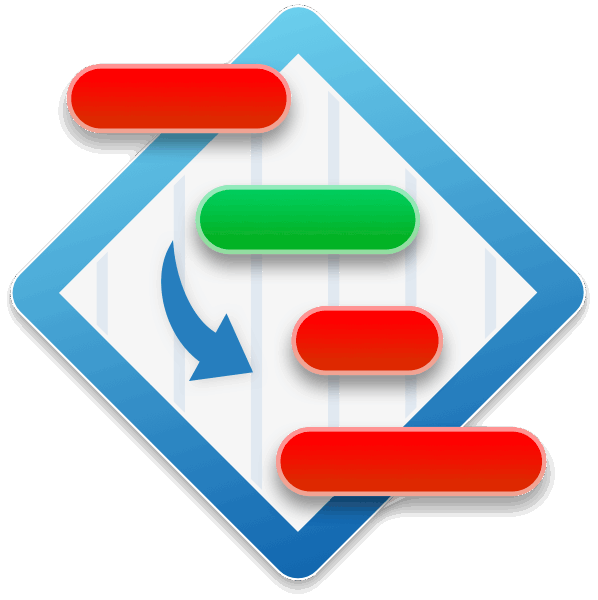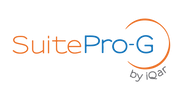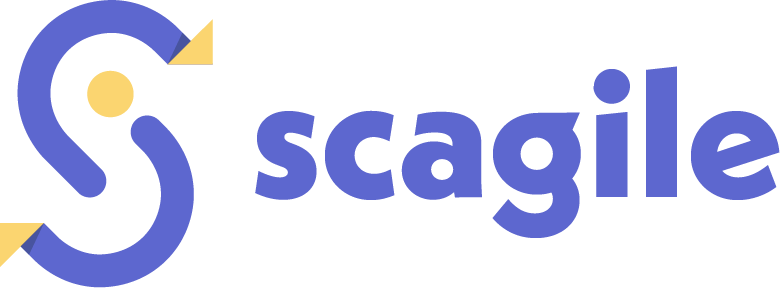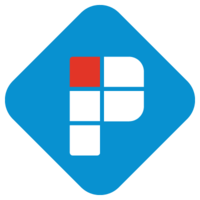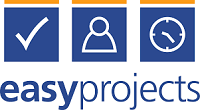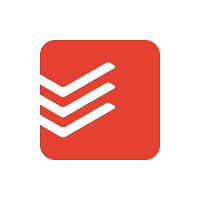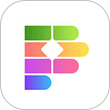Yes, most project management applications are designed to be accessible from numerous devices and platforms. This means you may work on your project from any desktop, laptop, tablet, or mobile device, independent of operating system. This versatility enables seamless collaboration and communication with team members, regardless of their location or preferred device. You can keep track of your project and make progress while on the road.
List of 20 Best Project Planning Tools
Roadmap Planner is the essential tool for strategic planning in your business. Specifically designed for managers, entrepreneurs, and C-level executives, this app provides an effortless way to create and collaborate on detailed roadmaps for marketing...Read More Roadmap Planner
SuitePro-G is a project portfolio management tool designed to enhance your efficiency. With its user-friendly interface, this comprehensive solution enables you to efficiently manage individual projects and larger portfolios. Stay organized, optimize...Read More SuitePro-G
Scagile - the premier agile project management solution specifically engineered for optimizing your organization, increasing productivity, and aligning with your corporate objectives. By leveraging value-focused workflows and effortless scalability,...Read More scagile
Beesbusy solution for streamlining task and project organization. Its user-friendly interface ensures smooth collaboration within teams, making it the go-to tool for task planning. With no setup needed, achieve effortless teamwork and increase produc...Read More Beesbusy
iPact is a business operations solution for all your procurement, sales, and planning requirements. Revolutionize your purchasing process and maximize spending efficiency with iPacts Buy-Side software. Accelerate your business operations and drive re...Read More iPact
DeepNotes is a note-taking software designed to provide unparalleled security through its end-to-end encryption. Its endless canvas and user-friendly navigation make it the ideal platform for organizing and jotting down your thoughts and ideas. Addit...Read More DeepNotes
Easy Projects is an exceptional collaborative work management software preferred by both on-site and remote teams for delivering concrete business outcomes. Our platform aids in reducing project duration by an average of 30% and boosts overall produc...Read More Easy Projects
Elioplus PRM is a platform for IT software companies seeking to optimize their partner networks. Our comprehensive system offers efficient partner recruitment, lead generation, and automated referral programs, accelerating channel sales and fueling b...Read More Elioplus PRM
10,000ft - a software that will revolutionize the way your teams work together. By simplifying task management, prioritizing projects, and maximizing resource usage, this tool ensures efficient project completion within set deadlines. With its robust...Read More 10,000 ft
Todoist is a dynamic project management software that offers flexibility to tailor to your unique requirements. It effectively organizes your sales pipeline, tracks budget, manages resources, and monitors project progress. Its automated workflow boos...Read More Todoist
GanttPRO - the essential Gantt chart tool for efficient project management. Easily control projects, from individual tasks to team collaborations. Set defined dates, assign tasks to team members, add milestones, and establish task relationships. Opti...Read More GanttPRO
FigJam is a tool for teams to collaborate effectively. Simplify your product development process and facilitate decision-making with features such as idea mapping, decision alignment, and seamless project planning. With an array of integrations, widg...Read More FigJam
JetBrains Space solution for tech teams and software companies. This all-in-one platform offers project planning, communication, and group and project management capabilities, allowing teams to streamline their development process and enhance collabo...Read More JetBrains Space
Ruum is a Project Management Software designed to provide a personalized experience. With Ruum, coordinating and collaborating on projects has never been easier. From beginning to end, this powerful platform helps streamline your project management p...Read More Ruum App
Project Planning Pro is a solution for project planning. This powerful software offers a range of efficient tools to help with task scheduling and resource allocation, specifically tailored to your projects needs. With its advanced online capabilitie...Read More Project Planning Pro
RationalPlan is a project management solution designed for businesses of all sizes. From efficient planning to seamless task management and file sharing, RationalPlan offers a comprehensive platform to boost productivity and streamline processes. Wit...Read More RationalPlan
Instagantt is a project management tool that simplifies project planning with its easy-to-use Gantt charts. With features like task scheduling, timeline tracking, and workload management, Instagantt empowers teams to efficiently plan, organize, and v...Read More Instagantt
Trackabi, a online platform that simplifies time tracking and leave management. Its intuitive interface, extensive reports, and personalized scheduling for employee absences optimize the monitoring of work hours. With robust features such as project...Read More Trackabi
Resource Guru solution for simplifying team scheduling and task management. Our user-friendly platform allows you to effortlessly track and allocate your teams availability, equipment, and meeting rooms. Make data-driven decisions with insightful rep...Read More Resource Guru
Projects.ly, created by 500apps, is time and project management tool designed specifically for SMBs. It enables smooth teamwork, efficient planning, and simplified monitoring of projects, resulting in increased business efficiency. Packed with a rang...Read More Projects.ly
Learn More About Project Planning Tools
- What Is Project Planning Tools?
- What Are The Recent Trends In Project Planning Tools?
- Benefits Of Using Project Planning Tools
- Important Factors To Consider While Purchasing Project Planning Tools?
- What Are The Key Features To Look For In Project Planning Tools?
- Why Do Businesses Need Project Planning Tools?
- How Much Time Is Required To Implement Project Planning Tools?
- What Is The Level Of Customization Available In Project Planning Tools?
- Which Industries Can Benefit The Most From Project Planning Tools?
- Conclusion
What Is Project Planning Tools?
Project planning tools are digital or software-based solutions that assist individuals and teams in planning, organizing, and managing projects from beginning to end. These tools provide a number of features and functionalities that let you create project timelines, set deadlines, allocate resources, track progress, and collaborate with team members.
They are critical for enterprises, organizations, and individuals seeking to improve their project management processes and achieve project success. Effective project planning is critical to every project's success, and these tools are expressly designed to make the process easier. They give a single platform for project managers and team members to coordinate and communicate, removing the need for lengthy email threads and complex spreadsheets.
These tools enable project managers to build detailed project plans, allocate tasks to team members, define milestones, and track progress in real time. One of the most major advantages of project planning tools is their ability to interact with other critical business tools like calendars, task management software, and communication platforms. This promotes seamless teamwork and ensures that all team members are on the same page and working toward a single goal.
Investing in project planning tools can help organizations save money and time. Project managers can distribute resources more efficiently and minimize costly delays by centralizing all project-related information and responsibilities. These tools also include reporting and analytics functions, which enable project managers to spot bottlenecks or inefficiencies and make the required changes to ensure the project's success.
When shopping for project planning tools, buyers should seek for features like Gantt charts, task management, communication tools, project templates, and reporting capabilities. These features will help to expedite project planning and management procedures, boost productivity, and ultimately contribute to project success.
What Are The Recent Trends In Project Planning Tools?
The field of project management tools is continually expanding. As new technologies emerge and change the way people work, project management solutions have evolved to fit the needs of modern enterprises. As a buyer, you must stay current on project planning tool trends in order to make an informed selection about which tool is ideal for your team.
Here are some of the most recent trends in project planning tools that you should know about:
1. Cloud-Based Collaboration: Cloud-based collaboration has transformed project planning. With teams working remotely and across time zones, a project planning solution that allows for real-time collaboration and communication is critical. Cloud-based project planning tools enable team members to view and collaborate on projects from anywhere, making it easier to keep track of deadlines and tasks.
2. Automation: With the emergence of AI and machine learning, project planning applications have begun to include automation functions. This allows teams to streamline repeated operations, freeing up time for more vital work. Automation can also help with scheduling and resource management, improving project efficiency and reducing errors.
3. Real-Time Tracking And Reporting: It's no longer necessary to manually track project progress and compile reports. Recent project planning systems include real-time monitoring features, which allow team members to monitor progress and receive updates in real time. This not only increases team transparency, but it also allows for faster decision-making and the identification of possible concerns.
4. Mobile Accessibility: The proliferation of mobile devices has encouraged project management solutions to make their platforms available on smartphones and tablets. This enables team members to be informed about project progress and assignments even when they are on the go, making remote work and collaboration more easy.
5. Integration: Modern project planning applications now allow for connectivity with other regularly used tools such as communication apps, file storage platforms, and time-tracking software. This integration streamlines workflows and eliminates the need to transfer between multiple platforms, saving time and effort.
Benefits Of Using Project Planning Tools
Project planning tools are vital for any business or organization that wishes to complete projects successfully. These tools assist project managers and teams in staying organized, tracking progress, and ensuring that projects are finished on time and under budget. Businesses can use project planning tools to streamline their project management procedures and increase the efficiency and effectiveness of their projects.
Let's explore, we'll look at the primary advantages of using project planning tools so you can make an informed decision about which one is right for your company.
1. Improved Efficiency And Productivity: One of the key advantages of adopting project management software is the increased efficiency and productivity they offer. These solutions simplify operations and enable teams to better manage their time and resources. With all project-related information in one location, teams can simply collaborate, track progress, and make necessary changes to fulfill project deadlines. This creates a more productive work environment by saving time and effort on project management chores.
2. Improved Project Organization: Project planning tools provide a centralized framework for organizing and managing projects. This means that all project-related tasks, deadlines, resources, and team members are in one place. With this systematic method, teams can readily identify activities that need to be accomplished, who is in charge of them, and when they must be completed. This reduces the need for various programs and spreadsheets to handle projects, lowering the likelihood of errors and miscommunications.
3. Real-Time Project Tracking: Project managers can use project planning tools to track progress in real time, allowing them to rapidly spot any delays or concerns. This kind of insight allows teams to proactively handle any issues, keeping projects on track and within budget. It also aids in the identification of areas for improvement in future projects.
4. Improved Communication And Collaboration: Effective communication and teamwork are critical to the success of every project. Task assignment, file sharing, and team messaging are just a few of the capabilities that project planning software provide to encourage communication and collaboration. This enables team members to stay connected, share updates, and collaborate smoothly. Improved communication allows teams to make decisions faster and retain a united vision for the project.
5. Risk Management: Managing hazards is an essential component of project management. However, identifying and mitigating risks manually can be difficult and time-consuming. Project planning tools provide risk management capabilities that assist teams in identifying, analyzing, and tracking potential hazards. With a full understanding of potential risks, project managers may handle them proactively, decreasing the impact on the project's timeline and budget.
6. Cost Control: Project planning tools not only help teams stay on track, but also keep projects within budget. These programs include budget management functionality for tracking expenses, costs, and budget deviations. This enables project managers to make better resource allocation decisions and avoid overpaying.
Important Factors To Consider While Purchasing Project Planning Tools?
When choosing project planning tools, buyers should consider a number of critical considerations. These characteristics can help guarantee that the tool they choose fulfills their specific requirements and has the features and functions needed to properly plan and manage projects.
1. Project Size And Complexity: The first consideration is the size and complexity of your projects. Larger and more complicated projects may necessitate advanced planning tools such as resource allocation, task dependencies, and progress tracking. On the other hand, smaller and simpler projects may simply necessitate basic planning skills.
2. Scalability: It is critical to assess whether the tool will scale with your firm. As your projects become more sophisticated or your team grows, the tool you choose should be able to handle the extra workload while also providing more features and resources as needed.
3. Collaboration And Communication: Effective project planning requires team members to collaborate and communicate with one another. Look for tools with capabilities like work assignment, real-time updates, and communication channels. This will help to guarantee that everyone is on the same page and working toward a common objective.
4. Compatibility: Make sure the project planning tool is compatible with your current systems and workflows. This includes compatibility with the devices, operating systems, and applications that your team employs. It should also work nicely with other project management software to help streamline the planning process.
5. Budget: Because project planning tools vary in price, it is critical to set a budget before purchasing. Consider the features you require and the value they bring to establish the best price range for your company. Furthermore, some tools include a free trial or a limited free version, allowing you to evaluate the tool before committing to a premium subscription.
6. User-Friendly Interface: A user-friendly interface is essential for ensuring that the product is simple to learn and utilize. This is especially critical for teams with various degrees of technical proficiency. Look for straightforward and adjustable tools that may respond to diverse user preferences, making project planning a seamless process.
7. Customer Service And Training: Having access to dependable customer service is critical in the event of a technical problem or training requirement. Look for products that provide comprehensive customer support and training resources to guarantee that the technology is implemented smoothly and efficiently.
What Are The Key Features To Look For In Project Planning Tools?
When it comes to choosing the best project planning tools, customers should examine a few crucial factors. These traits have the potential to significantly improve a project's overall success and efficiency.
Let's explore, we'll go over the key elements to look for in project planning tools, allowing you to make an informed purchase that best meets your project's requirements.
1. Task Management: One of the most important aspects to look for in project planning software is good task management. These tools should let you create and assign tasks to team members, set deadlines, and monitor progress. It should also have options for prioritizing work and assigning dependencies to ensure that the project is completed on schedule.
2. Resource Management: Project planning software should have capabilities that allow for efficient resource management. This includes the option to assign tasks depending on team members' availability, skill set, and workload. It should also allow you to monitor resource use and make necessary modifications.
3. Collaboration: An effective project planning tool should encourage team members to collaborate. Look for tools that allow teammates to connect, share files, and deliver real-time updates. This improves openness, efficiency, and reduces confusion.
4. Gantt Charts: Gantt charts are a common visual depiction of project schedules and an essential component in project management solutions. These charts give a complete picture of the project, including task dependencies, deadlines, and progress. They assist in identifying potential barriers and making adjustments to keep the project on track.
5. Reporting: Reporting is required to track project progress, identify bottlenecks, and make data-driven choices. Project management systems should have configurable reports that provide insights into tasks, resources, and budget. This increases project transparency and enables successful project management.
6. Connectivity: In today's fast-paced business climate, connectivity with other tools is an essential aspect for project planning software. Look for products that integrate with popular software, such as communication tools, task management systems, and cloud storage solutions. This makes it easier to streamline operations and increase overall efficiency.
7. Mobile Accessibility: As remote work becomes more popular, having a project planning application that can be used from a mobile device is advantageous. This enables team members to access and update project information from anywhere, ensuring that the project remains on schedule at all times.
Why Do Businesses Need Project Planning Tools?
Project planning is an important part of running a successful business. Without good planning, projects can quickly deviate from course, resulting in missed deadlines and costly delays. As firms become more reliant on project-based work, the need of good project planning grows. This is where project management tools come in. Project planning tools, often known as project management software, give businesses a single place to plan, organize, and track their projects. These tools include a variety of features and functionalities that help to streamline the entire project planning process, from concept to implementation.
Let's take a closer look at why businesses require project planning tools and how they may use them.
1. Centralized Project Management: One of the primary advantages of project planning software is that they give a single location for all project-related tasks. This implies that all team members have access to the project plans, timelines, and tasks from a one spot, reducing the need for various spreadsheets, emails, and physical papers. With everyone on the same page, communication and collaboration improve, resulting in a more coherent and effective project.
2. Efficient Resource Allocation: A project planning tool helps organizations allocate resources more effectively. This includes allocating tasks to team members, managing budgets, and monitoring resource utilization. Businesses can use these capabilities to ensure that resources aren't overworked and that tasks are done on time and within budget. This not only results in more effective project delivery but also helps to manage expenditures.
3. Real-Time Tracking And Reporting: Project planning tools provide real-time tracking and reporting on project progress. This implies that firms can monitor the status of their projects, identify any barriers, and make changes to keep them on schedule. Real-time reporting also enables better decision-making because managers have access to accurate and up-to-date project information.
4. Improved Time Management: Time management is critical in project planning, and project planning tools can help firms achieve it. These tools enable firms to develop realistic project schedules, set deadlines, and monitor progress toward those goals. This allows project managers to identify tasks that are causing delays in the project and take corrective action to ensure timely completion.
5. Enhanced Collaboration: Collaboration is essential in project planning since it requires numerous team members with diverse skills and knowledge. Task assignments, discussions, information sharing, and real-time updates are some of the elements that project planning software provide to increase cooperation. With these features, team members may collaborate smoothly, fostering a cohesive and efficient workplace environment.
How Much Time Is Required To Implement Project Planning Tools?
The time necessary to adopt project planning tools varies based on the individual tool chosen, as well as the project's size and complexity. On average, it takes between a few days and a few months to fully integrate and implement a new project planning tool. One of the most important elements influencing implementation time is the learning curve associated with utilizing the tool.
Understanding and navigating the tool may take some time, depending on its capabilities and the user's technical proficiency. Another thing to consider is the level of customization required to tailor the tool to the specific needs of a project or organization. This may include customizing settings, importing data, and developing templates, which might lengthen the implementation process. It is also critical to set aside time for training team members on how to use the new technology properly.
This ensures that everyone is on the same page and can take full advantage of the tool's capabilities. It is advisable to allow at least a few weeks for the implementation phase, which includes training and testing. This will allow for any necessary setbacks or adjustments before completely incorporating the tool into the project workflow. Overall, while the initial deployment of project planning tools may take some time, the long-term benefits of enhanced productivity and efficiency make it an investment worth considering for any project.
What Is The Level Of Customization Available In Project Planning Tools?
The level of customisation available with project planning software varies substantially. Some tools provide a great level of customisation, allowing users to modify the tool to their own requirements. Others offer minimal customizing capabilities but are intended to function effectively for a variety of purposes. The level of customisation provided in a project planning tool is a significant consideration when making a buying choice.
It can have a significant impact on the tool's effectiveness and efficiency in assisting users with project planning and execution. Some project planning software have adjustable templates, allowing users to choose from pre-designed templates or create their own. This enables a quick and simple way to set up projects geared to various sectors or project types. Others provide customized options including task lists, deadlines, and team member assignments.
This amount of flexibility enables customers to design a project plan that meets their own requirements and preferences. In addition, certain project planning systems allow for integration with other applications and programs. This expands the customizing options by allowing users to use data and information from other sources to construct a comprehensive project plan.
Before purchasing a project planning tool, it is critical to carefully consider the level of customization it provides. Consider the specific needs of your project and team to determine the level of customisation that will best meet your needs. Keep in mind that a tool with a high level of customization may require a longer learning curve, whereas a more basic tool may be simpler to use but may not provide as much flexibility.
It is critical to strike a balance that addresses your needs and interests. Finally, a project planning tool's level of customisation can have a significant impact on its performance and integration into your project management process. By thoroughly researching and analyzing this factor, you can make an informed decision and select the best tool for your project planning requirements.
Which Industries Can Benefit The Most From Project Planning Tools?
Project planning tools have become an essential component of organizational operations, enabling firms to streamline project management efforts and achieve better results. These tools provide a variety of features and functionalities that are specifically intended to meet the varying requirements of various businesses. With the increasing demand for effective project planning and administration, firms must choose the proper technology that meets their industry-specific needs.
Let's explore, we've identified the industries that can benefit the most from project management software.
1. Construction Sector: The construction sector is notoriously complicated and dynamic, making project planning and management difficult. A project planning tool can be transformative when dealing with a large number of tasks, teams, and stakeholders. It allows construction organizations to generate precise project schedules, manage budgets, allocate tasks, and monitor progress in real time. Furthermore, these technologies assist in risk management, cooperation, and resource allocation, ensuring that projects are completed on time and under budget.
2. Information Technology: Project planning tools are extremely useful in the fast-paced, ever-changing IT business. With several projects running concurrently, it is critical to have a single platform for managing tasks, schedules, and resources. These technologies support Agile techniques, team collaboration, and smooth communication, making them excellent for IT project management. They also include Gantt charts, project dashboards, and reporting options to monitor project progress and identify bottlenecks.
3. Marketing And Advertising: The marketing and advertising business is known for its highly creative and strategic projects that necessitate meticulous planning and administration. A project planning tool offers a disciplined approach to campaign planning, budgeting, and execution, assuring a successful project delivery. These solutions also include social media integration, task management, and campaign tracking capabilities, making them an excellent alternative for marketing and advertising organizations.
4. Healthcare: In the healthcare industry, project planning is critical to success due to severe rules, short schedules, and limited money. A project planning tool provides the control and organization required to handle crucial projects including clinical trials, medication development, and medical research. These solutions also make it easier to collaborate across teams and departments, resulting in improved teamwork and resource management.
5. Education: Educational institutions and universities manage a wide range of initiatives, including classroom activities and research projects. A project planning tool can help educators and students manage assignments, deadlines, and cooperation more successfully. Academic projects benefit greatly from project planning tools, which include elements such as task dependencies, resource allocation, and progress tracking.
Conclusion
Finally, selecting the correct project planning tool for your purposes is critical to the success of your initiatives. Consider essential variables such as your budget, project size, team communication capabilities, and reporting features to narrow down your alternatives and make an informed decision. It is also vital to test out a few apps using demonstrations or free trials to determine which one best fits your workflow.
Remember to think about scalability and integrations for future expansion and efficiency. We hope that this buyer's guide will help you choose the ideal project planning tool to improve your project management procedures, increase productivity, and drive company success.
Project Planning Tools FAQ's
Can Project Planning Tools Be Accessed Across Multiple Devices And Platforms?
Is Project Planning Tools Future-Proof And Adaptable To Emerging Technologies Like AI, Blockchain Or IoT?
Project management solutions are continually improving to keep up with emerging technologies such as artificial intelligence, blockchain, and the Internet of Things. They are intended to be future-proof and adaptable, making it easier for project managers to integrate these technologies into their planning and execution processes. In reality, many project planning systems already integrate with these technologies, allowing teams to reap the benefits and stay ahead of the curve.
Is There A Free Trial Offered To Assess Project Planning Tools Before Committing?
Yes, many project planning applications include a free trial so that users can evaluate the software before committing to a paid membership. This allows you to evaluate the tool's features and functioning and determine whether it satisfies your project management requirements. It is recommended that you use free trials to check that the tool is a good fit for your team before making a paid commitment.
Does Project Planning Tools Offer Data Security Features And Meet Regulatory Compliance Standards?
Project planning tools provide a variety of data security measures to secure the safety and confidentiality of project information. These characteristics include user authentication, data encryption, and safe data storage. Furthermore, many project planning tools are compliant with regulatory requirements such as GDPR and HIPAA, ensuring that your data is managed in compliance with industry guidelines. These security measures contribute to lowering the risk of data breaches and ensuring compliance with essential regulations.
Can Project Planning Tools Integrate Seamlessly With Existing Tools And Platforms?
Yes, most project planning solutions are built to work easily with other products and platforms. These programs feature a diverse set of integrations, including popular collaboration tools like Trello and Asana, as well as project management suites like Microsoft Project. This allows teams to operate more efficiently by consolidating all of their project planning tasks in one location. With integration, teams can simply move data and updates between platforms, expediting the project planning process.

